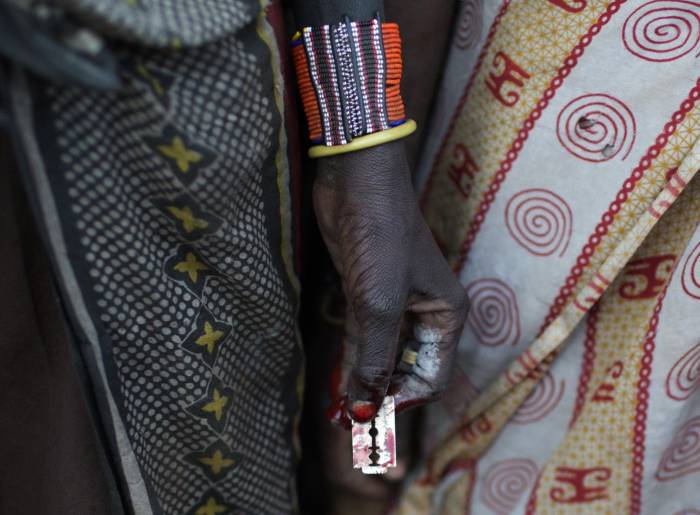
source
Earlier this year, Nigeria joined a group of 18 African countries that have banned female genital mutilation. Gambia is the new member of the group. It is not clear when the law will be passed but Yahya Jammeh seemed pretty determined to put an end to this practice.
Saving Gambian women
Female genital mutilation affects 130 million women in Africa and in the Middle East and according to a UNICEF report, 76% of Gambian women have been subject to the procedure. Jaha Dukureh, an anti-female genital mutilation activist said:
“I’m really amazed that the president did this. I didn’t expect this in a million years. I’m just really proud of my country and I’m really, really happy, I think the president cared about the issue, it was just something that was never brought to his attention.”

{adinserter CNP5}
A harmful practice
Female genital mutilation is in no way similar to male circumcision. The operation is performed on females who are often very young. There are four different types of procedures, and they all have one thing in common: the removal of the labia or clitoris. The practice was originally created in order to “cleanse” women of desire with the intention to keep them pure. Instead, it causes several health issues which can be fatal. They include urinary problems, intense pain in the pelvic floor, suffering from childbirth complications later in life, or even death.

SEE ALSO: Gender Equality Is Now Better In Rwanda Than In Most Developed Nations.







